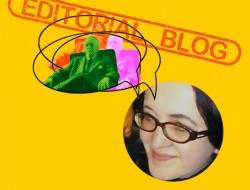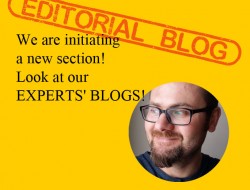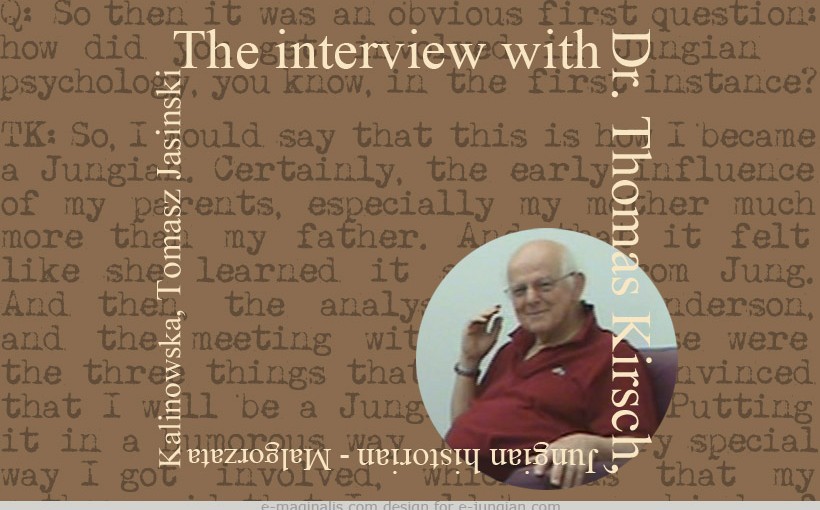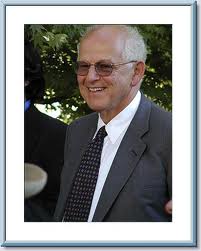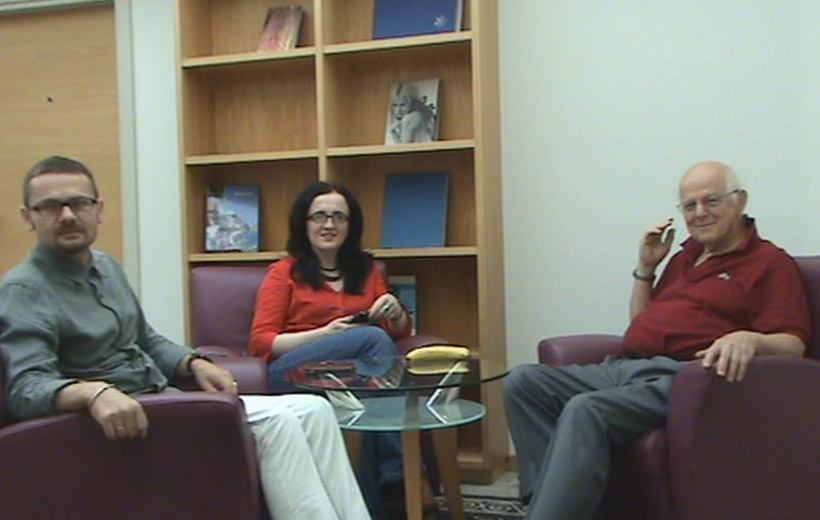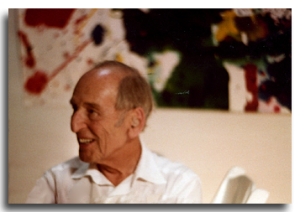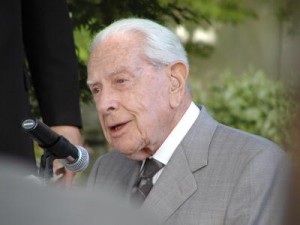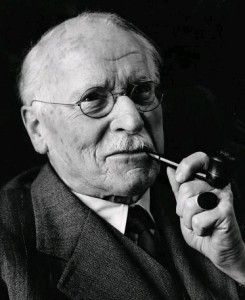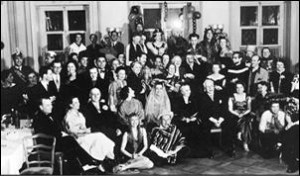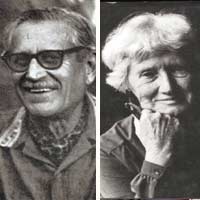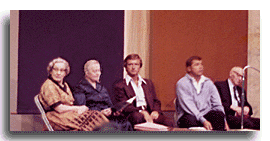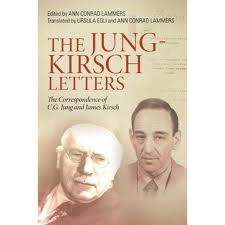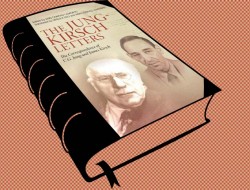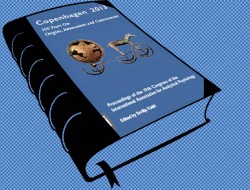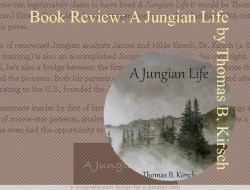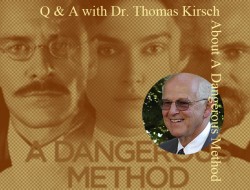Malgorzata Kalinowska, Tomasz Jasinski – editors of e-jungian.com
XIXTH Congress of IAAP
Copenhagen, Denmark, 21st August 2013
Thomas Kirsch
Dr Kirsch is the son of two first generation Jungian analysts, James and Hilde Kirsch, who began their analytic work with Jung in 1929. Through his family he met many of the first generation of Jungian analysts. He is a graduate of Yale Medical School (1961) and completed his psychiatric residency at Stanford Medical Center in 1965. A graduate of the C.G. Jung Institute of San Francisco, he has served there in many capacities, including being president from 1976 – 1978. From 1977 until 1989 he served as a vice-president of the International Association for Analytical Psychology, and from 1989 – 1995 as president. He has also been a member of the American Academy of Psychoanalysis since 1976. Author of many papers on dreams, history of analytical psychology, and the analytic relationship, and editor of Jungian sections in encyclopedias and psychoanalytic dictionaries, he has now written a book on the history of analytical psychology. In addition to his private practice, he is on the faculty of the C.G. Jung Institute in San Francisco and a lecturer in the Department of Psychiatry at the Stanford Medical Center.
This year The Fisher King Press published his memoir: „A Jungian Life”
TK – Tom Kirsch
TJ – Tomek J. Jasinski
ŁM – Lukasz Müldner-Nieckowski
MK: We are very happy to be able to talk to you today. For some time we have been reflecting on the relationship between the history of analytical psychology and the developments of Jungian Associations as well as its relationship to the individual and group identity. As you know there are two Jungian groups in Poland, that have a status of the IAAP Router Groups. We are one of them.
TK: Are there any Jungian books translated into Polish?
MK: Most of Jung’s Collected Works is translated. Some books by Marie Louise von Franz, Marion Woodman, one book by James Hillman, but there is almost nothing of post-Jungian psychology and its clinical application. This is also the reason for this interview. We thought that to be able to promote Jungian psychology in Poland, we need to show its roots, its development since Jung.
TJ: I thought that it is particularly important, since the whole history of analytical psychology is so complex – and complicated – I hope you can imagine that for people like in Poland it is particularly difficult, where there is so little access to data, to information, to literature in Polish.
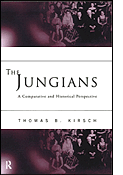 TK: You looked to my book “The Jungians”.
TK: You looked to my book “The Jungians”.
TJ: Yes. We know your book. It is in the syllabus of our training. We are now after the first edition of the preliminary training, the group is just about to start the advanced level, and the second group is starting this September.
We think of doing the translations of Jungian literature also. And that is a huge project, very long term, needless to say I guess.
TK: Yes [Laughing].
MK: So actually, as you can see from what Tomek just said, we are again at the beginnings. Again there are the beginnings and pioneering in Jungian psychology. And that is why we thought it would be great to meet with you and talk about the beginnings, and what’s next, and see how does it really feel to be so close to the history of Jungian psychology again.
TJ: So then it was an obvious first question: how did you get involved in Jungian psychology, you know, in the first instance?
TK: Well, I got a very special way I got involved, which was that – I will put it in a humorous way – my mother said that I could be any kind of Jungian analyst I wanted to be. [everybody laughing]. So I have had very strong influence both from my mother and father that this is what I should be when I grow up. Of course that was just an initial push. And I was exposed to a lot of the early influences. After World War II the Jungians were coming to Los Angeles, who came to lecture there from Zurich. So, for instance, Barbara Hannah, von Franz, C. A. Myer, and the bunch of other people came. So I met all of them. And I went to university. That was an idea of becoming a psychiatrist and then a Jungian analyst. But I think that up until the time I was in my early twenties, I was living out a myth, an expectation of my parents. You know it wasn’t really my own. And then, I think what really turned me on, and what really influenced me, was that I did want to become a psychiatrist. I didn’t know whether I wanted to become a Jungian. And I came to San Francisco though, because I needed an analysis. And if I was going to get into analysis in the United States at that time, the only place that I could really do that would be San Francisco. Which is where my parents were rather unknown, and where I was considered rather independent in analysis. And I got it – thank God. I saw dr. Joseph Henderson. And I would say that analysis with him was life changing, absolutely life changing. It kind of separated me from my parents psychologically. And taught me something about the symbolic life and the reality of psyche. I mean, I am even looking at these symbols [pointing at the spiral pattern at the carpet on the floor]. These were symbols that he [Henderson] was very fond of… The spiral, Neil Russack was too, and Neil got that from Henderson too.
TJ: He wrote an essay on spiral.
TK: Right, right. And I have a paper where I use a spiral at the end; the systole and diastole of analysis. You know, that you go up and then you come back down and then you go up again. Jung writes about that too and uses that image. So anyway, the analysis was really a breakaway for me from my parents, psychologically. I stayed in San Francisco, in Bay Area, and I knew I would never go back to Los Angeles, which had been what my parents wanted me to do, to come back and take over the Jungian movement in Los Angeles.
MK: Big expectations.
TK: Oh [laughing], that was not for me. Burt I felt that what I got from Henderson, in a very profound way, was the reality of the unconscious. It became real for me in a way that it had never become before. And that connected me to become a Jungian. Now, I should mention, and actually I wish I mentioned it yesterday at the plenary session, because my guess is that I am probably the only person here [amongst the participants of The Congress] that still met Jung. I had an hour with him in 1958 and that was very meaningful, very meaningful. I’m sure that it influences how I see Jung even today. I got the hour, because my dad who had that hour originally had to teach at the Jung Institute and couldn’t have that hour. So he called Aniela Jaffe, Jung’s secretary, and she asked Jung if that would be okay if the son came. He met me a couple of times before, so I wasn’t a stranger, a complete stranger, so he said that he’d be glad to see me. I went in. Of course I got prepared in terms of what I should present to Jung. My analyst was going over some of my dreams with intersecting moons and circles and showing how archetypal they were and blah blah blah blah…, and he said “Jung would really like this”. And I walked in, to his room, and he looks at me and he says: “so, you want to see an old man before he dies, huh?” [everybody laughing]. And it cut through everything.
TJ: That’s what I was going to say – that it cut through everything, all that preparation…
TK: It cut through everything and it went on. I mean, you know, I don’t remember a single other thing that went through that hour, or hour and a half, or however long we spent. Because it was like… first of all, he was real. I mean, he cut right to what was important. He was right. I wanted to see him before he died. He was 83 and not the best of health. But it was very meaningful for me to have seen him. And he had me just down to earth and was direct with me. You know, he didn’t start talking about alchemy or anything like that to me, which would be completely inappropriate.
So, I would say that this is how I became a Jungian. Certainly, the early influence of my parents, especially my mother much more than my father, because my father’s behavior was that he acted out a lot with his patients… so I felt that what my mother was giving me worked. And that it felt like she learned it somehow from Jung. And then, the analysis with Henderson, and the meeting with Jung. Those were the three things that got me and convinced that I will be a Jungian analyst.
MK: So we are actually speaking now about the identity. And this is also a very important subject for us, as we are in the conditions where we often ask ourselves the question of what does it really mean, to have the Jungian identity in times when everything is starting. Where are the roots of this identity? Where does it come from really? What events do shape it?
TK: I had a Jungian identity from that point on. And in my training in psychiatry, or wherever I went, into psychoanalytic places or whatever, I always was known as a Jungian. And that was my identity.
And actually I think 5 or 6 years ago I gave a paper in Zurich in which I said what it means to have a Jungian identity. Right at this moment I can’t remember what I said about it [laughter]. But I worked on it. I mean: what does it mean to have a Jungian identity? Does it mean that you believe in a collective unconscious, the reality of the psyche, individuation, psychological types, whatever. Is it a set of specific constructs or theories? To me it is just much more inside. Whatever I do, I look through that Jungian lens, so to speak, but it is really my lens at this point, it’s not Jung’s lens. And that was another very important thing to do, to not feel that I have to be a slave to Jung’s ideas or his perceptions. That to be Jungian also meant to find my own way – psychologically. And that’s what he would want me to do. And I tried to do that, you know, all my life.
[long pause].
TJ: it’s something about recognizing something in yourself.
TK: Yes.
TJ: I think that this is why this training is so individual, comparing with other trainings, in any other depth approaches. Perhaps it touches on something that we were hoping to talk about later, which also has to do with the issue of identity and what does it really mean today to think of ourselves as Jungians. I think, I feel, that there is something radically different comparing with other depth approaches.
TK: I think that’s true. I think it was always true.
TJ: Because, you know, so many things are being said nowadays about similarities and finding common threads and motifs and about the dialogue with all of the different kinds of psychoanalyses. And I think it’s terribly important. It just is. At the same time, and this is the question I am pondering about very much myself, this tension between the dialogue and similarities, what can be recognized as common, as a place in which we can dialogue with one another and have some kind of mutual understanding; and what is radically different, what differs from other approaches. Maybe even more so regarding the Jungian approach than what differs the other psychoanalytic approaches from one another.
MK: And on the other hand we have what you’ve said – that this is a very individual training. If it is so, what does really connect people with each other? What is it that makes us Jungians really, if there is so much individuality in every of us?
TK: Well, what would you like me to comment on here?
TJ: Maybe we are jumping to our next question but I wondered also about something else, since you were talking about how did you get involved in a Jungian. And we were also wondering how did you get interested particularly in the history of analytical psychology? Because you did do a lot of work on all of that.
TK: So how did I get into that?
TJ: Yes. Particularly in this topic of history.
TK: I would say this: one of the things was that, when growing up with Jungian parents, I was supposed to be an introverted thinking intuitive type like Jung. Which meant that I would become a big scholar of alchemy and things like that. When I got into my analysis with Henderson, he realized that I was actually an extraverted intuitive feeling type, and that thinking was my third function and sensation was my fourth. It was a huge relief actually to begin to sense that I was not a natural scholar who would like to go home every evening and read books which is what my dad did. So, it’s a long answer but I am coming to an answer about the history. The thing is that, because of my typology, when I had met a lot of these early people, I have found a lot of them fascinating, OK? During talking to them. And so I had a natural affinity for kind of trying to figure out the history of all these people: of how they got there, how my parents got there, how everybody got there, you know? Who was friends with whom and who wasn’t? There was a lot of that in the beginning.
MK: We know well about it.
[laughter]
TK: Well, in 1971 I went to my first congress. I was 36 years old. And I didn’t know it, but at the delegates meeting like we are having this afternoon, Jim Hillman got up and nominated me for second vice-president. And I didn’t know he was going to do that.
TJ: You mean: just like that, just out of the blue?
TK: You see, what happened was that he and Wheelwright had been planning this and he didn’t tell me. So they’ve been talking to other delegates. And it was my first congress. Some older members were upset that as a young member I was made a delegate and they weren’t. But it was clearly part of the Wheelwright’s maneuvering so that I would get to the delegates so that I could be nominated for the second vice-president. Well, I lost by one vote. And Wheelwright afterwards told me that there was something going around with the voting that wasn’t quite right. You see, he even said “you could really complain”. Because I lost by one vote. And I said to myself: I am 36 years old. I’ve got a young daughter, I don’t want to get into this international thing, I mean it was probably just as well that I didn’t get into the scene at that time. But what it made me do was that when the next election time has come I was a forerunner. So, in 1977 I became a second vice-president. And so then I went through all that. And at that time you were elected for two terms as second vice-president and then for two terms as the first vice-resident and then for two terms as the president.
TJ: Six terms altogether.
TK: It was an 18 years commitment. And so I teasingly said, which has more truth than not, that it is my second half of life individuation.
[laughter]
TK: Because, what was also happening was that the small organization, as it was in the beginning, was growing rapidly. And especially by the time that I was the president, it was the time of the fall of the Berlin wall, and all the Eastern European countries beginning to make inquiries about the Jungian training, including Russia. And China was making little ways about wanting to know more about Jungian psychology, South America, Australia. I mean, it was worldwide. Suddenly people from all the continents wanted to become Jungians or wanted more of the Jungian influence in their lives.
TJ: Is this how the whole idea of the individual route started?
TK: No. The individual routers came in the beginning. But the individual routers, in the beginning, all they had to do was to fill out a form: with whom they had analysis, and supervision, and then they went up before the committee. They never got interview. It was assumed that the people on the executive committee new them, which most of the time they did, and could say: yes or no. So it was quite a different process than now and actually when I was a president I changed it. I said: we have to meet with these people individually and we started by requiring a 50 page case study. So that we could see how people worked. And that’s how it was when I gave up presidency in 1995. And then it got more and more structured. So you have these developing group, routers, paying money for the routers. You have analysts who went over to whatever country it was and you have another analysts who would do analysis. I mean, it got much more structured.
MK: Yes, now there are these 3 exams that one has to pass. The three exams on the route which are the interview at the beginning, the intermediate and then the final.
TK: Yes. So after I finished my presidency I thought to myself: I have a pretty unique view of the Jungian world. I mean, I knew it from the beginning, pretty early, from mid 40s, and now as the IAAP representative, I was getting to see the present scene. So I really had an overall view of the whole thing. So that’s when I send the proposal to Routledge and they accepted it and then I wrote “The Jungians”. You see, by the time I left 18 years of working with the Executive Committee, I have developed. From the beginning where everybody loved me, to a couple of people at the end who couldn’t stand me. And I couldn’t stand them either. So in a way it helped me to say that I have had enough of the IAAP, which I did. I didn’t want to deal with them anymore. But writing the book helped to free me from the IAAP. To write different chapters about different people and different developments. The way that different professional Jungian societies developed. It was good.
TJ: So I imagine that you didn’t have to do that much of a research for the book. I mean, I’m sure you did but after 18 years of presidency, of having been involved, you just knew…
TK: I knew a lot. And they gave me a little bit of money to do some traveling. And I did. In one trip I went to Italy and Israel. I didn’t go back to Russia and I didn’t go back to China. But I had a good impression, because I had continued contact with people and I knew who they were so I could write that up okay. In a way I was probably weakest at Poland, and all Eastern European countries. The only country I had been to in Eastern Europe is Hungary.
MK: But I think that in Poland Jungian training started in 1998…
TJ: I think the formal group started in 1998 or 1999, the IAAP group.
MK: So, it was already after your presidency. So this history is evolving now rather than at that time. You know, I was very much interested what was your source of interest in Jungian history, because I am myself quite interested in the history of psychoanalysis. And for me it has been a way of dealing with the different organizational tensions in group life. At one point I thought: I cannot contain all those things that are going on anymore if I don’t know the history, how it was before. And when I started to read more, I thought: now there is some space in me. Now I can understand different things, it is easier, so it kind of help me to deal with the beginnings, because beginnings are always complicated and difficult.
TJ: So with individual routers it seemed to be a parallel with how it has been like in the very beginning in general, I mean people would just travel to Jung to have analysis. Like someone once told me: you would have a certain amount of hours with Jung and then he would say: you’re done. And then you would be an analyst.
MK: Yes, and in the beginning we make standards and then we deal with standards we made.
TK: Well, standards were very loose at the beginning. Standards got much tighter as the time gone on. And I suppose it’s good and bad but I mean I don’t want to be dictated by standards. I want to be able to break the particular standard if it doesn’t feel like it fits the situation.
TJ: That is what the discussion in the Education Committee meeting was about. You know: how much you structure the training and how much you don’t.
MK: And how much you individualize the training according to the cultural conditions. Because you can make standards that are completely unrelated to the culture.
TK: Sure.
TJ: I think that you have had a lot of involvement in China also as far as I know, is that correct?
TK: Yes. It is.
TJ: It is such a different culture from ours, from Western culture.
TK: Yes. I think that a lot of Eastern European countries couldn’t emerge as separate entities so somewhere maybe in the mid 90s, don’t you think?
MK: Politically it was in late 80s but then all these new developments were taking place in 1990s really, within the country. It considers psychotherapy as well. In 1990’s the formal training institutes started to operate in Poland. In our Jungian group the first IAAP analyst graduated in 2005 and now there are there more including me and Tomek. In other group there are 5 new analysts. It makes 9 now in Poland. It still means we are in the beginnings, little groups where everyone knows each other well. It constitutes a specific dynamic, and one needs to take it into consideration when organizing training.
TK: Yes that’s true. What is interesting, at the beginnings of the groups there is often a kind of maternal element in their developments. I saw it when I was doing my book on the history of Jungians. I went to several places, those initial women were still in power, as Rosemary Douglas in Spain and Ricks Weaver in Australia, Dorothea Norman-Jones in New Zealand. So there were a lot of places where women have had their analyses with Jung and then would come back to their country of origin. Ester Harding and Kristine Mann in New York were examples of that. The two places in the beginning were not like this: San Francisco and London. In both there were medical people, psychiatrists, heading them, heading the show, heading the program. And I think it made for a difference, less incest and more kind of formal training than in the other places, where women were in control. It tended to be a little more confused, boundaries were less clear, things like that.
MK: this is interesting. I didn’t think about it in this way. About the kind of maternal structure. You stay at home all your life, close to mother.
TK: I mean, I can give you an example, from myself, which was in 1988. My wife and I went to Australia and New Zealand to help them begin. While in Australia, we had dinner with Ricks Weaver who is the founder, and several of her students. And then at 7:30 suddenly the dinner was over and she said that it was time for all those people to be interviewed; now you interview all these people.
TJ: Just like that?
MK: After dinner?
TK: Right after dinner. And I thought “gulp”. This is how it had been at my home in Los Angeles were most of my parents’ friends were their patients. And so I thought “OK, here we go”. So, you know, I was much more familiar with this pattern and I wanted to make sure that I didn’t do that. I had an office separate from my home. And I also for one time had a separate entrance for my patients to come in and to leave. Now it is not so important. The few that see me now, kind of all know each other; they may not know each other but they used to see the same person after or between hours.
So that’s how it was. So my beginning was to see all these women who would start Jungian groups. And the other big group of people to start groups were Jews. These were basically German Jews who all formed the group in Berlin and when the Nazis came in they all had to leave. They were Jews who had lost their religious connection to the Orthodox conservative form of Judaism and were looking for spiritual answers and they found them in Jung. So there were several of them like Gerhard Adler, my parents, Erich Neumann, who started groups in Israel, Los Angeles. Krisitine Mann was a person in New York. Gerhard Adler was in London. So the Hitler and the Nazis by coming into power spread these people out and they formed Jungian groups that way. In California for instance, we had San Francisco and Los Angeles. In San Francisco the founders were from all the families from California who have been there for hundreds of years and were not Jewish. An on the other hand there was this Los Angeles group who were all Jewish and were refugees. And they were new to the land. So the two groups didn’t get along well in the beginning. The San Francisco group was, you see, much more grounded in the reality of the world, they were doctors, they were teaching in medical schools. The people in LA: one was an ex civil servant lawyer in Berlin, one was my mother who didn’t have no formal education, my father was an MD from Heidelberg and he couldn’t practice in United States. There were former school teachers or school presidents. I mean, it was something. As we would say, a “motley crew”. So it is very hard to make a generalization of how these places started. But the thing that you do know is that when each of the places started it had just one or two analysts in town, which is the way it usually was. That analyst then became very challenged to both do analysis and supervision, have to maybe see a partner of one of the people, and it always started to be very incestuous. There was no way to get around that and that’s a big issue.
TJ: It is an issue for us as well. I mean, we are such a small group so inevitably we just bump onto one another in all kinds of possible ways. And then what do you do with that?
TK: Exactly.
MK: And the other things is, what I was wondering yesterday at this meeting of presidents and liaison persons, that in each country where there is no formal training, in countries that have some specific location which is far away or has some specific socio-political situation, there is a challenge and responsibility to hold different dynamics when there are new analysts just starting. Like there, when you said about those Jewish people coming who were traumatized as well, carrying in themselves all the things that they lost.
TJ: They were forced to leave. They didn’t choose to do so. When Nazis came, they run away, they had to.
TK: Yes. They would not have been left.
MK: So everything was changed somehow.
TK: Yes. And one of the things that happened in the early days of San Francisco and Los Angeles was that they did something that I think I would recommend to any of training program. Which is that they brought an outside examiners from another society to help them kind of break up a certain kind of incestuous feeling in how to see if the candidate is good enough. To bring an outsider from… I don’t know who else is there: the Czech, Bulgaria or something like that, to bring-in one outside examiner. And that turned out to be very helpful. Because he would give a different point of view.
MK: Yes.
TK: I am just mentioning it as a way, because of the parallel. The thing that happens, no matter why people left, when they come to a new place you run into this situation where you have one or two or, if you are lucky, three analysts and everybody knows who everybody else see, and then it is almost impossible to keep strict boundaries. It is almost impossible. That’s what I would say about that.
MK: This is actually something we were thinking about while setting up the training. So when we accepted trainees into the training which we teach we don’t accept them to analysis so that we are just teachers. So at least those new people can have a free space to think about us as teachers and not as analysts.
TK: It is interesting and problematic. It is a real problem.
MK: Yes.
TK: So you asked about the parallel – that’s the real parallel.
MK: And I think it happens again. When I was talking to people from many different countries, from Central and Eastern Europe, there is always some tension. There is always some kind of tension.
TK: Yes. Oh yes.
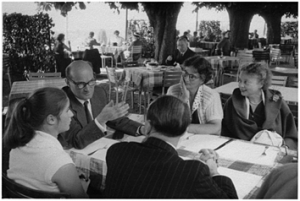
G. Adler and Hilde Kirsch, next to Liliane Frey-Rohn; on the right his daughter Miriam Stone. First Meeting Executive Committee of IAAP in 1956 w Sonnenberg Hotel, Zürich
MK: So this complex pattern doesn’t have a solution really because it cannot have one. You deal with it the best you can. But I think it is important to know that it has consequences for the future.
TK: Oh it sure does, it really does.
TJ: That’s why you study history, you can see.
TK: And that is the kind of thing that will cause the split. Because when people are too incestuously connected to one another, eventually there has to be a break. And the break at that point is not pleasant. It is usually a rupture and very hidden and very, you know, “I don’t want to ever see you again”, you know, that kind of thing.
MK: And there is a wound that stays, the harm that stays.
TK: Yes.
MK: Yes, the most difficult thing is that if it is still incestuous, the wound is handed down into the next generations.
TK: Absolutely! There is no question. The wound is just handed down. I see that in our San Francisco group when we were talking about academic things. One of our co-founders was adamant against making intellectual demands on the candidates. He wanted it to be all personal growth. And there was a big fight early on when one of the other analysts wanted to make candidates write a paper on an academic subject. And he just exploded. And there was a big fight. One of the people left never to come back and we still have that. I mean, the candidates would do very well but they don’t have to do that. I mean, Tomek knows this better than anyone, we don’t have an academic requirement. And many training programs have that academic requirement. But it all happened. Back in 1970. You know, the fight about that. And actually in San Francisco we had a fight back in the 40s. There was a group of people who got into Jung and were very religious and they were very Christian. And they wanted to have seminars on Jesus Christ in the training program. And our founders didn’t want that. So there is still a separate group in the Bay Area but none of them are IAAP analysts and that group isn’t an IAAP group. But there is a place called Four Springs where they do meditation and seminars and have seminars on Jesus, Jesus and Jung [laughing]. So, I mean, you can see how people get some members who may turn out to want to push for too Christian or too Buddhist or too something point of view in the training and it is really destructive.
MK: And maybe this kind of thing pushes us back to the idea of identity, because when you have one strong member who says: ”this is the important thing”, it shapes the identity of the followers, because they say: “oh yes, we are like this, like him, he is our fundament or base” so you don’t ask yourself question of “who am I really”? Who is me in relation to all this stuff. You just say “I am like him”. So you have this conflict of identity and there is a solution somehow for this difficult question about the personal identity. I was always thinking that for me, for example, being a Jungian really means carrying this question – of what does it mean to be a Jungian – not answered. When I was holding that question for myself, the further I was in training, the more I was able to hold the situation that I have this question unanswered, that I can ask myself what does it really mean for me and that some space of meaning comes up but there are no clear answers.
TK: Yes.
MK: There is feeling rather than answers.
TJ: That is why I was particularly curious of asking you that question, I mean, as someone, you said that you are probably one of the very few people here at the Congress who met Jung, and I was wondering how do you think about it? From the perspective of today, after the whole history of the developmental school and the marriages with the other schools of thought in depth psychology, what does it really mean from that perspective? Does this question even make sense to ask about something specific that makes us Jungian? You know, usually I hear people saying: of course we are so different, each of us will think differently and in a very individual way, but many people I talk to about it would say that there is something that has to do with how do we really understand the collective unconscious and the relationship with it, that this is such an important part of this identity, and I wonder how do you think about that?
[long silence]
TK: You know, I fade out, because I think that you asked an impossible question; the question which is basically unanswerable. I think that is part of your experiences. You have already got 4 analysts in your group.
MK, TJ: Yes.
TK: So in a way you are already along the way. And if the four of you are getting along… are the four of you getting along?
MK: I would say: as for Jungians, quite well.
TK: Quite well… well it seems that way to me, okay. Otherwise I don’t think I’d be sitting here with the three of you in this kind of relative ease and relative comfort if I felt a lot of tension among any of you. So, I think it’s really important for the four of you to really start thinking how are you going to develop? How are you going to grow? What does it mean to have a Jungian identity? What does it mean to be a Jungian for each of you? I mean: is that just a name or is that because you got an accreditation from IAAP or from whoever? You know, or are you Jungian in your soul? And what does that mean?
TJ: You know, you said that you fade out because I asked an impossible question. I think that you just answered that question.
TK: Right.
TK: But there was one question that you didn’t ask me. The question of what is the difference in training as a router and the training in the institute.
TJ: Yes. We were heading to it before the break. But now you brought it back.
TK: Yes, you see I think that some people got very upset with me, because I would accept people as individual members in the society. They would say: but you wouldn’t have accepted them in San Francisco. And they were right. But I said to myself: it is so much harder to start the new group and when I think about my parents and what their generation did. I mean, they have had 30 or 60 hours with Jung. That was all. They might have had a seminar. But then they just had to go out on their own to figure their way out. Now, what I’m saying to you is that you have to have more slack as a router because you don’t have the resources available to you as if you were back in San Francisco full time and do your work there.
TJ: And I think it is really important that you said that. Because it makes me feel that what can look like something easier from the outside, if you just carry that sense of responsibility, it turns to be harder and not easier.
MK: Yes, it is true. I think about what you said in this way as well. That’s how it felt from being in the situation.
TK: Do you feel like I answered most of your questions?
MK, TJ: Yes.
TK: But just to continue on that, I think you have to have different criteria for people that are starting than in well-established institute that’s been going on for 25 or 30 years. You have to have different expectations, that’s true. Now: Tomek, I hope this is not upsetting, but Tomek is one of those people who would have gotten through our San Francisco training program with flying colors, I mean from my point of view he would get through anywhere. I mean: most people would not get through San Francisco training program but they would get through their own simplified training program to begin with which would then gradually get more formalized. I was sitting at the table last night with two of the Danes that I interviewed in 1992 when they were just forming the Danish group here. And then they started telling me what the Danish training is like now and I thought “My God”. They have to write on the subject of archetypal symbolism and modern art, you know they didn’t have to do that in the beginning. But they are making their candidates doing a lot more. You know, this is such a unique opportunity to be able to talk like this. So even if I got tired, if there are other things that you want to come up with, I want to answer them to the best of my ability.
ŁM: It is so important for us to hear about your approach to splits and how it begins in the different parts of the world, because we live it out emotionally and it is a part of our lives.
TK: Well, we haven’t talked about splits specifically.
MK: But about the roots of splits.
ŁM: About roots and how it begins really.
TK: But there are splits all the time. And it sounds like the split in Poland has already happened.
MK, ŁM: Yes. In 2010.
TK: It’s so hard to keep a group together when you have different ideas, different personalities. What you find as you see people, is that there is a lineage of who has been analyzed by whom. So you find that people who had particular analyst are going to kind of stick together in some way.
ŁM: In the beginning, when we were the group of 15 or something, the trainees, we thought idealistically that we will never split and we will hold on together as long as we can. But after the split we thought – well, okay, it is done already.
TK: I mean, one of the things is that we are proud that in San Francisco we have really not split. We have allowed the different developmental people, the archetypal people, the classical people, the Hillman people, they are all under one roof, so to speak.
MK: So the question really is how to build a base structure that can keep tension between different choices.
TK: That’s right, that’s right. The way it is described in San Francisco is that it is because the two founders, Wheelwright was an extraverted intuitive feeling type and Henderson was introverted thinking intuitive, and two of them were very close friends with each other. So that there is a respect for differences and how they approach analysis, how they approach world, how they approach colleagues, psychoanalysis and all that. And they did it very differently but they accepted it with each other.
MK: I think there is a chance for us, as we have different levels of friendship here, the three of us here, so I think this is the most important thing to have some kind of points of meeting.
TK: Okay.
MK, TJ: Well thank you very much.
TH: Yes, sure. It is my pleasure. I’m glad to do this.
MK: I would like to say for ending, that, it is important for our group that we can give our new students historical roots. So this is for us to be more grounded and this is also for them, to show them “you see, you’ve got history”.
TK: Right.
MK: We are very grateful for having you talk to us.
TK: Good. All right.
New book by Tom Kirsch – „A Jungian Life”
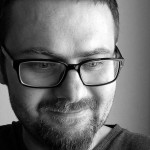 Tomasz J. Jasinski
Tomasz J. Jasinski
Tomasz has a double academic background. He graduated in clinical psychology in the Warsaw University and he is also a graduate of the Institute of Philosophy a the Jagiellonian University in Cracow. He studied psychology at the California Institute of Integral Studies in San Francisco and at the Institute of Transpersonal Psychology in Palo Alto, California, United States. During his studies he worked, among the other clinics, in the James Goodrich Whitney Clinic at the C. G. Jung Institute in San Francisco, California.
He is a Jungian analyst since 2013 – an Individual Member of International Association for Analytical Psychology. He is also a founder member and current president of Polish Association for Jungian Analysis (PAJA). In PAJA he participates in the work of its Training Committee and is a teacher at the first stage of its training. Tomasz is a Review and Contact Editor of e-jungian.com.
He is interested in the meaning of silence for analytical work and the transcultural aspects of analytical training. One of his papers can be read at e-jungian.com – „Silence a Circumambulation”.
 Małgorzata Kalinowska
Małgorzata Kalinowska
Malgorzata graduated in psychology at the Faculty of Pedagogy and Psychology in the University of Silesia, Katowice and worked in the past both in family and children care and in outdoor and indoor psychotherapy clinics. She has worked in private practice since 1999 and since 2007 she works in the private practice only. In 2013 at the Copenhagen Congress she graduated as the Jungian analyst – the Individual Member of International Association for Analytical Psychology. She is also a founder member of Polish Association for Jungian Analysis (PAJA). In PAJA she participates in the work of its Training Committee and is a teacher at the first stage of its training. She is the Editor-In-Chief of e-jungian.com and the English-Polish translator.
Her main areas of interest are the transcultural aspect of development of analytical psychology and the relationships between trauma and culture. She writes and publishes on those subjects. Her blog can be found at psychoterapiajung.pl
Tags: IAAP, Jospeh Henderson, Thomas Kirsch












